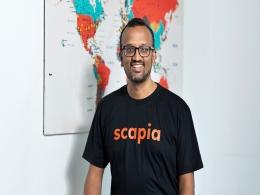Bangalore-based Zoomcar, a five-year-old self-drive car rental startup, is betting on its marketplace platform Zoomcar Associate Programme (ZAP) and international foray for the next phase of growth. Backed by marquee names like automaker Ford, Sequoia Capital and Nokia Growth Partners, it aims to clock a cumulative million trips this quarter. In an interview with VCCircle, co-founder and CEO Greg Moran outlines the company's expansion plans for India and overseas, its unit economics and the need to raise funds. Excerpts
You have said you are profitable in many cities. Can you elaborate?
In most cities, we have achieved strong unit economics. Our marketplace ZAP has taken off well. (ZAP allows users to buy vehicles on the company’s behalf and earn from them when they are not driving by renting them out.) Over 20% of our fleet is from ZAP, a number that will reach 25% shortly. ZAP yields even more profits since its cost structure is extremely efficient. As a platform, it leverages our core technology competency. You can cross-subsidise both parties.
Discount is a very small percentage of our business from a revenue standpoint. I can't share the exact numbers, though.
You were aiming to have a fleet of 25,000 cars by 2018-19. Are you on track to achieve that?
We run 3,000 cars at the moment. In our business, there are always supply constraints. In the last few months, there have been regulatory issues such as speed governors for commercial cars but we look at that as an opportunity.
We will have over 25,000 cars in India over the next two years. The growth is going to be exponential. ZAP should account for 85-90%. We have several thousand people waiting to enrol, and already have over 600 users on ZAP.
You raised $24 million from Ford and other investors a year ago, and topped up that round a few months later. What are your fund-raising plans?
As I said earlier, most of our cities are profitable, and our operations are self-sustainable. We haven't raised funds to run our operations. The way we look at it is, we have an efficient mobility model not just for India but other emerging markets, too.
In the world of transport, you cannot have too many friends. The business is largely offline and there is the inherent complexity of humans engaging with machines. In our case, however, Ford has been very supportive. Sequoia and Nokia are the other strong investors we have. Whenever we think about fund-raising, we look at whether the partner can help us serve the customer better. That is always the criterion.
We are fortunate to have strong unit economics, which allows us to invest a good portion of funds in core technology and product. Fund-raising is not a concern for us.
How many trips have you clocked so far? How many cities are you present in?
Since inception, we have done around 9 lakh trips. We should hit a million this quarter. On an average, our ticket size is Rs 4,000-6,000.
We are present in 24 cities in India, Udaipur being the most recent. We will look at the top 30 markets. So, six more cities for us to go to.
In the past, you have spoken about the company's plans to go international. Can you elaborate?
We have done quite a bit of research, and have a decent sense of markets in Asia and Africa. We should be in 20-plus countries in two-three years. We are looking at a couple of places pretty aggressively. We will start with Asia and eventually get into Africa, which is a pretty uncharted market. From the tech point of view, not many strong companies have come out of Africa. The demographic is quite similar to India's, and it presents a large opportunity.
Ford has picked up a significant stake in Zoomcar and said the investment holds long-term promise. There have also been talks about a strategic interest from Ford. Any comments?
I can't comment on Ford's intentions per se. All I can say is, we have become great partners and have strong relations. They understand the 360 degrees of technology, business, markets and product.
I think the platform we are building has applications in developed economies, whether it is the US, Europe or China. With what we have, all these vehicles already on the road can become shared vehicles.
Like this interview? Sign up for our daily newsletter to get our top reports.







